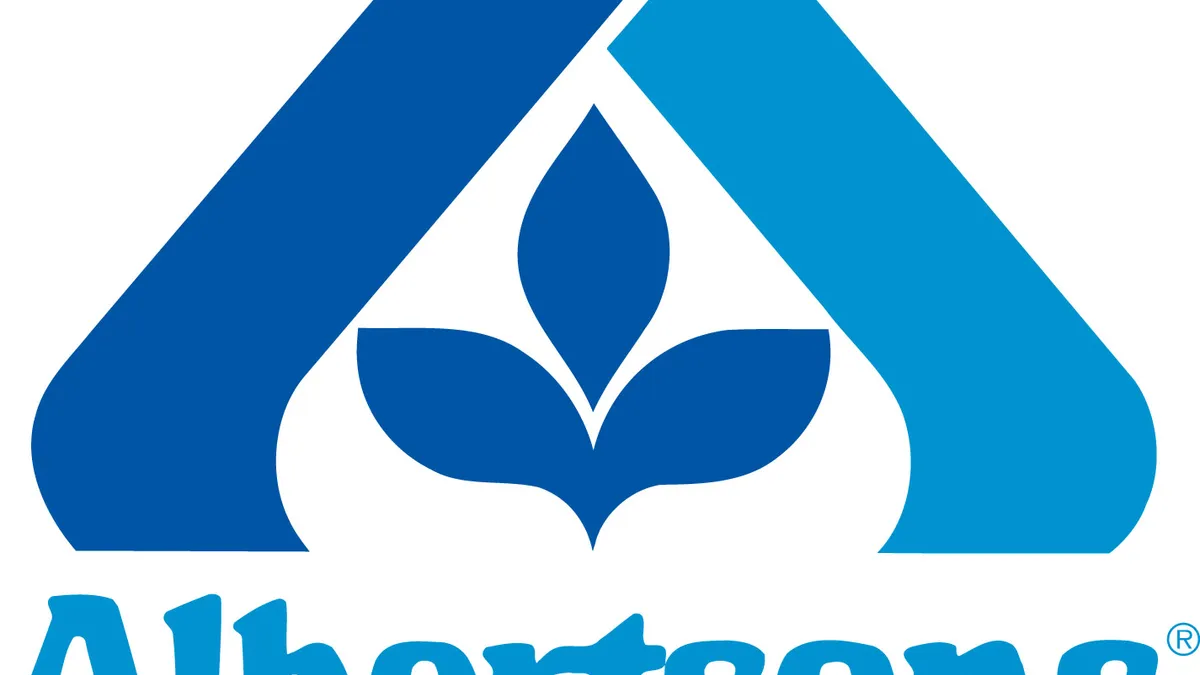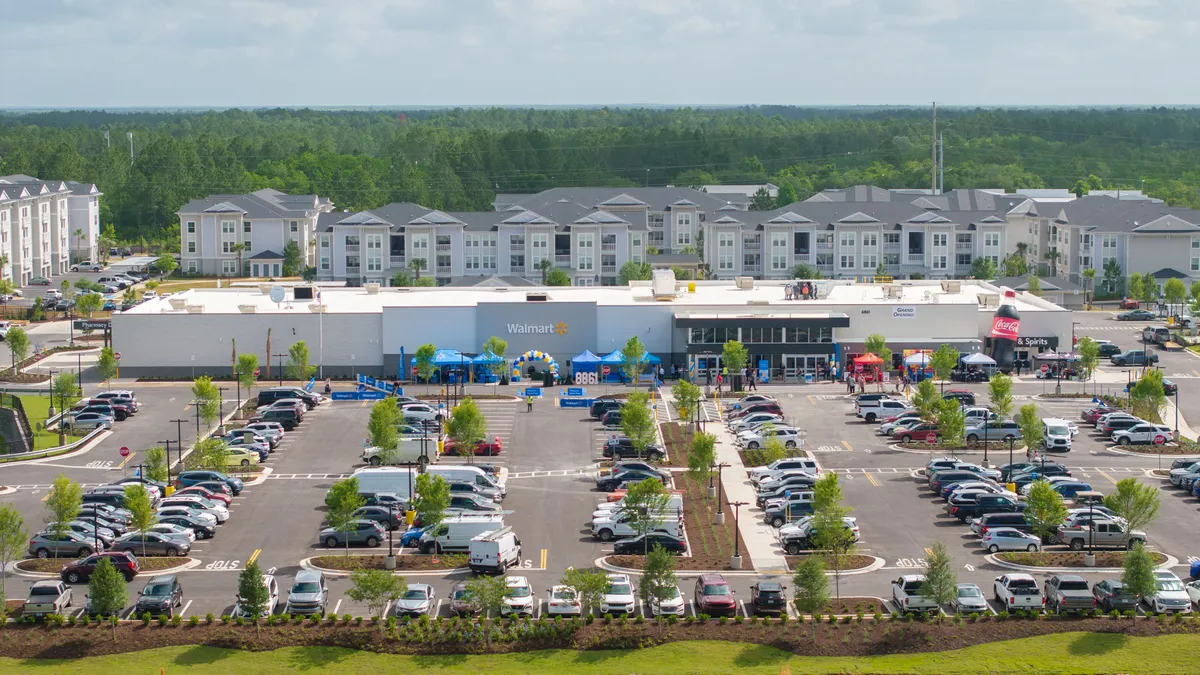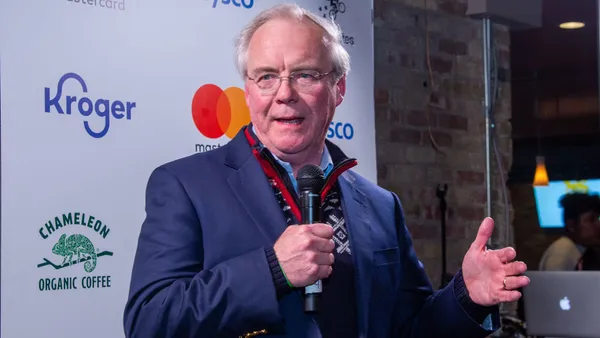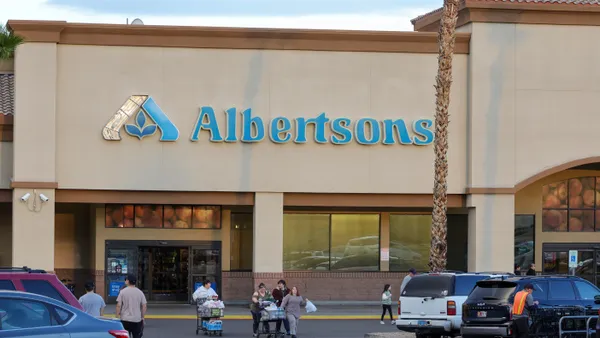Dive Brief:
- Albertsons announced a new program that will cut plastic across its Own Brands portfolio by sourcing 100% recyclable, reusable or industrially compostable packaging across its banner stores and Plated meal kit company by 2025.
- The retailer tapped How2Recycle to include QR Codes and other information for consumers informing them about how materials can be recycled through a standardized labeling system. Albertsons said these codes will appear on all store brand products by 2022. By 2025, Albertsons expects its private label packaging to be composed of 20% recycled material.
- The plastic reduction effort will also tackle some of its supply chain materials, starting with recycling #5 polypropylene crates that are used to transport fruits and vegetables into plastic pellets that can be used to make more crates.
Dive Insight:
Plastic has become a hot topic recently with consumers demanding retailers to cut down their reliance on single-use plastic items. The subject became a big focus after stories circulated about Whole Foods’ widespread use of plastic to package pre-sliced fruit and meal kit companies’ pervasive use of plastic to ship ingredients.
In its 2018 Sustainability Update, Albertsons committed to reducing carbon emissions and mitigating its reliance on plastic materials. It also recently unveiled an eco-friendly line of products under its Open Nature label made from plant-based certified compostable material and are tree-free, plastic-free and BPA-free. The line features picnic products including plates, bowls, cutlery, straws, cold cups and hot cups.
Albertsons push for more sustainable products comes from consumers, particularly millennials and Gen Z, who have voiced their concerns about retailers and products' environmental impact. These consumers will soon surpass Gen X in grocery spending and are also willing to fork over more cash for sustainable products.
Major names like Procter & Gamble, Nestlé, PepsiCo, Unilever and other companies have all signed on to Loop's reusable and refillable packaging initiative. Trader Joe’s recently pledged several sustainable packaging programs that involve swapping out Styrofoam trays with recyclable PET1 trays, replacing plastic greeting card sleeves and floral wrapping with renewable alternatives and ditching the foil and plastic pouches for tea bags.
Walmart is aiming to convert its stores to 100% recyclable, reusable or compostable packaging for its private brands by 2025. It’s also tapped How2Recycle to help consumers understand recycling. Kroger has its Zero Hunger, Zero Waste initiative that is working on reducing single-use plastic bags in its stores by 2025, and Aldi announced a plan that would make all of its product packaging reusable, recyclable or compostable by 2025.













